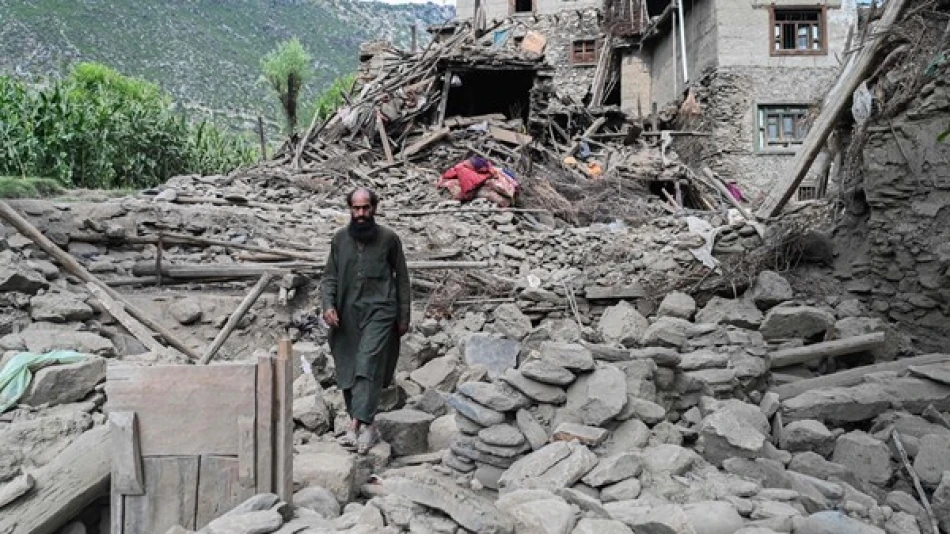
UN Pledges Aid for Victims of Devastating Afghanistan Earthquake
Afghanistan Earthquake Exposes UN's Humanitarian Challenge Under Taliban Rule
A devastating earthquake that struck remote eastern Afghanistan early Monday has killed at least 812 people and injured nearly 3,000 more, prompting the United Nations to mobilize emergency aid despite the complex political landscape created by Taliban governance. The disaster, which wiped entire villages off the map, presents a critical test of international humanitarian operations in a country where formal diplomatic relations remain severed.
Scale of Destruction Overwhelms Local Capacity
The earthquake devastated four eastern provinces, including Nangarhar and Kunar, with casualty figures expected to rise as rescue teams reach survivors trapped under collapsed buildings. UN Secretary-General António Guterres expressed solidarity with the Afghan people and pledged comprehensive support for relief efforts, highlighting the organization's commitment to humanitarian principles that transcend political boundaries.
UNICEF spokesperson Salam Al-Janabi emphasized the tragic timing of the disaster: families were asleep in their homes when the earthquake struck, contributing to the massive loss of life. This detail underscores how natural disasters disproportionately affect vulnerable populations in regions with limited earthquake-resistant infrastructure.
International Response Tests Humanitarian Framework
The World Health Organization has deployed teams to Afghan hospitals and health facilities to treat the wounded, assess urgent medical needs, and distribute essential medicines and supplies. Meanwhile, the UN High Commissioner for Refugees has positioned staff on the ground to provide shelter, tents, water, and blankets to displaced survivors.
Afghanistan's Unique Aid Challenges
This earthquake response occurs against the backdrop of Afghanistan's isolation since the Taliban's return to power in August 2021. International sanctions and the freezing of Afghan assets have severely limited the country's capacity to respond to emergencies, making UN humanitarian operations more critical than ever.
Unlike earthquake responses in countries with robust international partnerships—such as Turkey's 2023 earthquake that saw immediate bilateral aid—Afghanistan's response relies almost entirely on UN agencies and NGOs operating under complex political constraints.
Infrastructure Vulnerabilities Amplify Natural Disasters
Afghanistan's mountainous eastern provinces, where this earthquake struck, are particularly vulnerable due to poor construction standards and limited emergency response capabilities. The country sits along active seismic zones, yet decades of conflict have prevented investment in earthquake-resistant building codes or early warning systems that might reduce casualties.
The complete destruction of villages, as reported by UN field agencies, reflects this infrastructure gap. In contrast, countries like Japan or Chile have invested heavily in earthquake preparedness, significantly reducing fatality rates even from major seismic events.
Long-term Recovery Faces Political Reality
While immediate humanitarian aid flows through established UN channels, Afghanistan's long-term earthquake recovery will likely face the same funding and recognition challenges that have plagued the country since 2021. The international community's ability to separate humanitarian needs from political considerations will determine whether affected communities can rebuild resilient infrastructure or remain vulnerable to future disasters.
This earthquake serves as a stark reminder that natural disasters don't recognize political boundaries or governance disputes. The UN's response will be closely watched as a measure of how effectively international humanitarian systems can operate in politically isolated regions where human need remains urgent and undeniable.
Most Viewed News

 Layla Al Mansoori
Layla Al Mansoori






